Mercenaries from Russia‘s Wagner Group are training Belarusian special forces in military exercises taking place just three miles east from the border with Poland, Belarus‘s defence ministry said on Thursday, as new satellite images revealed that about 300 vehicles had arrived at the group’s military base in the country.
For a week, units of Belarusian special operations forces will undertake combat training missions alongside Wagner fighters in a military training area in the south-western region of Brest, which borders Poland, a Nato member country.
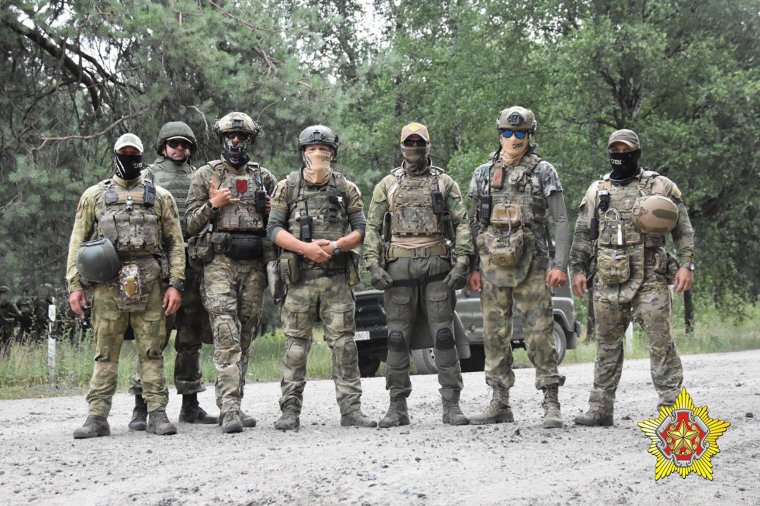
“The armed forces of Belarus continue joint training with the fighters of the Wagner PMC [private military company],” the defence ministry said. “During the week, special operations forces units together with representatives of the company will work out combat training tasks at the Brest military range.”
The ministry posted pictures of masked Wagner instructors, their faces covered in accordance with the mercenary group’s rules, training Belarusian soldiers with armoured vehicles and what appear to be drone controls.
Meanwhile, new satellite imagery revealed that over three days, about 300 vehicles arrived at a military based used by the Wagner Group in Tsel, in central Belarus, about 60 miles from the capital, Minsk. It comes after troop tents were pitched at the base on 26 June.
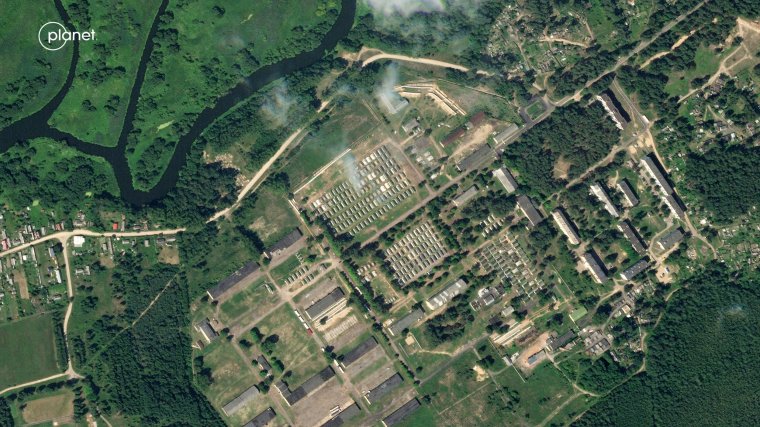
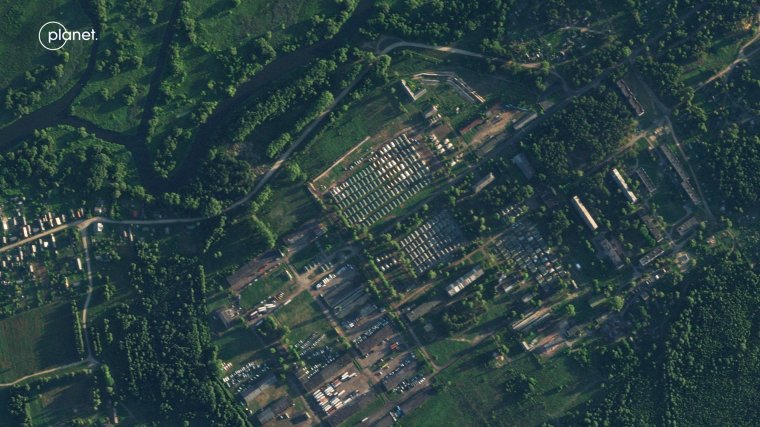
A Belarusian special forces serviceman told the state news agency Belta: “The combat training of the armed forces has been in full swing since the beginning of [Russia’s] special military operation [in Ukraine].
“By all possible means we get information, analyse experience, and use it in practice. With assistance of the people, who have recently returned from a combat zone. They have extensive combat experience and the most up-to-date information. One can say this combat experience is invaluable for us.”
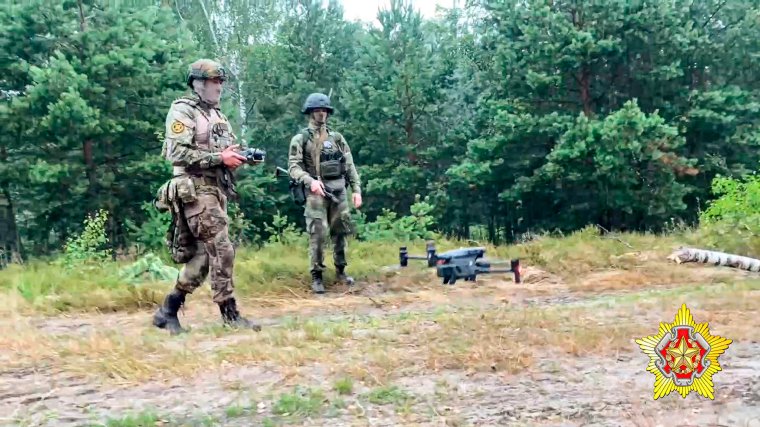
The Polish defence ministry said: “Poland’s borders are secure, we are monitoring the situation on our eastern border on an ongoing basis and we are prepared for various scenarios as the situation develops.”
The Polish defence minister, Mariusz Blaszczak, said on Thursday he had ordered some troops to be moved from the country’s west to Biala Podlaska, around 28 miles west from Brest, and in Kolno, further north.
“We must bear in mind that bringing a few thousand of Wagner’s forces into Belarus poses a threat to our country, hence my decision to move some military units from Poland’s west to Poland’s east,” Mr Blaszczak said on state Radio 1. “Their task it is to train and to deter an aggressor, it is to show Russia that Poland’s border should not be crossed, that it would not pay off to attack Poland.”
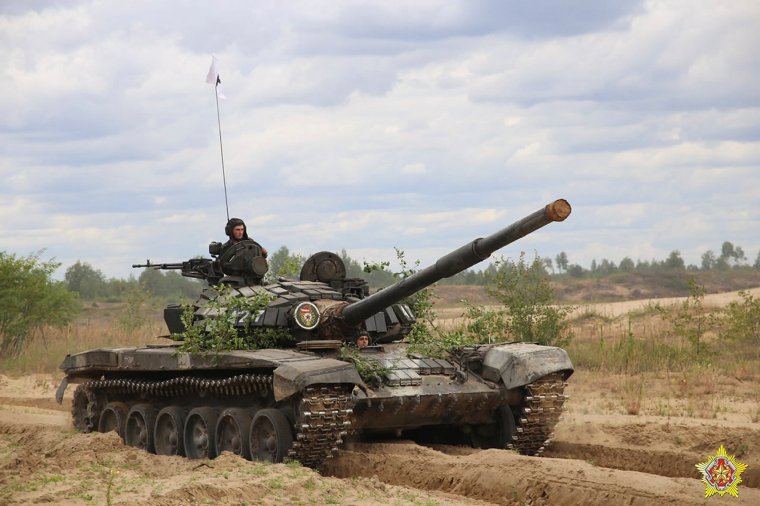
The Kremlin has called Poland’s decision to bolster its forces along its border with Belarus “a cause for concern”.
Asked about Poland’s move, the Kremlin’s spokesman, Dmitry Peskov, told reporters: “Of course it is a cause for concern. The aggressiveness of Poland is a reality.
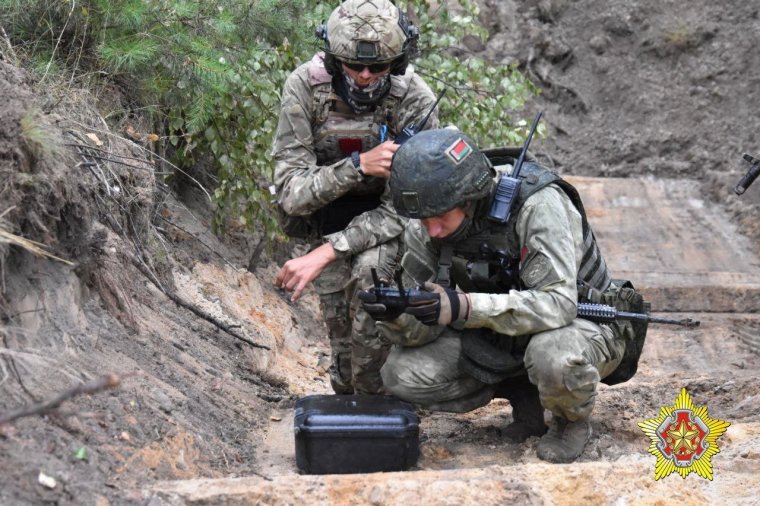
“Such a hostile attitude towards Belarus and the Russian Federation requires heightened attention [from our side].”
On Wednesday, a video emerged apparently showing Yevgeny Prigozhin, the Wagner leader, for the first time since the aborted mutiny against the Russian military leadership last month, saying his soldiers would be in Belarus “for some time” training the Belarusian army before “gathering our strength and heading off for Africa”.
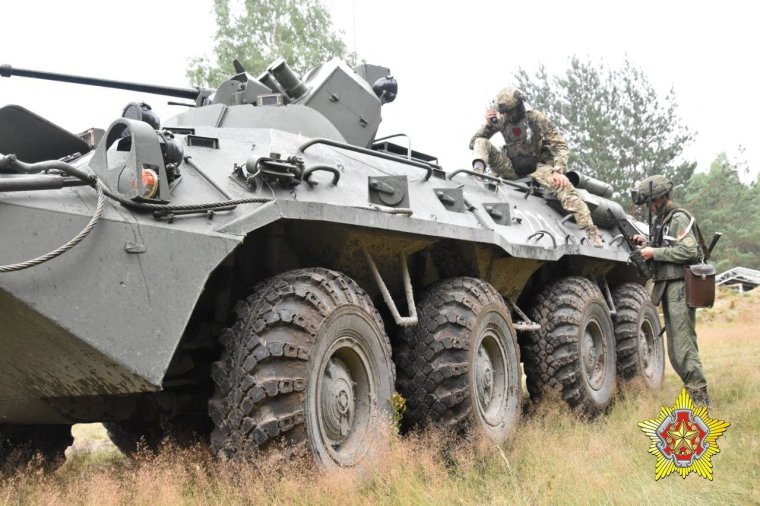
He added: “We may return to [fight in Ukraine] when we will be certain that we won’t be made to disgrace ourselves and our experience.”
Last week, the Belarusian defence ministry released a video showing Wagner fighters training soldiers from Belarus at a military range near the central town of Osipovichi, about 56 miles from Minsk, the Belarusian capital.
“Wagner fighters acted as instructors in a number of military disciplines,” the Belarusian defence ministry’s television channel said.
Poland said this month it would send 500 police to reinforce security at its border with Belarus to cope with rising numbers of migrants crossing as well as possible threats after Wagner mercenaries relocated to Belarus.
It comes after a deal last month was brokered between Russian President, Vladimir Putin, and Mr Prigozhin to end Wagner’s attempted coup, under which Wagner fighters were told to either join the Russian army or go to Belarus, a close ally of Russia.
Mr Prigozhin also agreed to go into exile in Belarus, although for some weeks his whereabouts were unknown.


